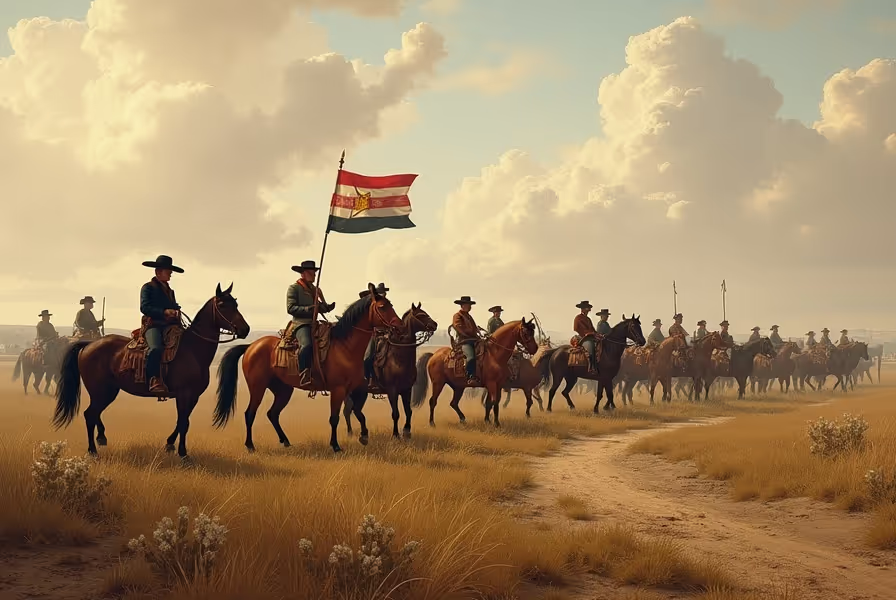Understanding the Kansas-Nebraska Act: A Pivotal Moment in U.S. History
The Kansas-Nebraska Act of 1854 was one of the most controversial and impactful pieces of legislation in American history. Introduced during a time of intense national division over the issue of slavery, this act reshaped the political landscape and moved the United States closer to the Civil War.
If you are interested in understanding pre-Civil War laws, slavery in U.S. territories, or political decisions that shaped the conflict between the North and South, the Kansas-Nebraska Act is essential to know.
What Was the Kansas-Nebraska Act?
The Kansas-Nebraska Act was legislation passed by the U.S. Congress in 1854. It was crafted primarily by Senator Stephen A. Douglas of Illinois. The act created two new territories—Kansas and Nebraska—and opened them up for settlement.
But unlike previous laws, it allowed settlers in those territories to decide for themselves whether to allow slavery. This was the principle of popular sovereignty.
- Date passed: May 30, 1854
- Main author: Senator Stephen A. Douglas
- Purpose: To open new territories for settlement and build a transcontinental railroad
- Controversy: Repealed the Missouri Compromise and fueled the slavery debate
The Missouri Compromise and Why Repealing It Mattered
To understand the impact of the Kansas-Nebraska Act, you need to look at the Missouri Compromise of 1820. That earlier law had banned slavery in territories north of the 36°30′ latitude line, except for Missouri itself.
By allowing slavery above that line through popular sovereignty, the Kansas-Nebraska Act directly overturned the Missouri Compromise. This made abolitionists in the North very angry and gave new energy to sectional tensions.
Kansas-Nebraska Act's Role in Increasing Tensions Over Slavery
The act led to immediate and violent consequences. This period became known as "Bleeding Kansas."
- Pro-slavery and anti-slavery settlers rushed into Kansas to influence the vote
- Elections were marked by fraud and clashes
- Violent attacks broke out, including the sacking of Lawrence and the Pottawatomie massacre
These events showed that the idea of popular sovereignty could not peacefully decide the question of slavery in new territories.
Impact of the Kansas-Nebraska Act on American Politics
The political consequences of the act were just as dramatic as the violence it caused. It led to a major political realignment.
- Democratic Party: Split between Northern and Southern factions
- Whig Party: Collapsed due to disagreements over slavery
- Republican Party: Formed in 1854 in direct opposition to the act and slavery's expansion
Abraham Lincoln, who would later become president, gave many impactful speeches against the act. His opposition helped shape the early Republican Party and its anti-slavery stance.
Did the Kansas-Nebraska Act Lead to the Civil War?
Yes, the Kansas-Nebraska Act significantly contributed to the causes of the Civil War. By reopening the debate on slavery's expansion, it undid decades of fragile compromise and launched the country down a path of division.
The act didn't just stir conflict in Kansas; it made slavery a national crisis once again. The conflict between pro-slavery and anti-slavery sides became more militant than ever.
Within a decade, tensions escalated into full-scale war between the North and South in 1861.
Frequently Asked Questions About the Kansas-Nebraska Act
Why was the Kansas-Nebraska Act important?
It overturned the Missouri Compromise, led to violent conflict in Kansas, and was a major step toward the Civil War.
What is popular sovereignty and why did it fail?
Popular sovereignty meant letting settlers vote on slavery. It failed because both sides used violence and fraud to influence results.
Who opposed the Kansas-Nebraska Act?
Most Northerners, especially abolitionists and members of the emerging Republican Party, opposed the act. Abraham Lincoln was one of its most vocal critics.
How does the Kansas-Nebraska Act affect modern American history education?
It’s a key event in U.S. history curricula. Understanding the act helps students grasp how political laws can drive national conflict and social movements.
Lessons Learned from the Kansas-Nebraska Act
The Kansas-Nebraska Act teaches us how divisive issues can destabilize a nation when compromise collapses. It reminds us that laws not only shape policies—they shape lives and history.
By understanding this act, you gain insight into the roots of the Civil War, the rise of the Republican Party, and the limits of compromise in moments of deep moral disagreement.
Final Thoughts: The Lasting Legacy of the Kansas-Nebraska Act
The Kansas-Nebraska Act of 1854 did more than create two territories. It challenged national agreements, ignited bloodshed, and restructured American politics.
If you're exploring the causes of the Civil War, studying the evolution of slavery laws, or learning about U.S. legislative history, this act is a must-study topic.
It’s not just history—it’s a powerful reminder of how democracy, lawmaking, and public opinion intertwine to shape the destiny of a nation.










.svg)



